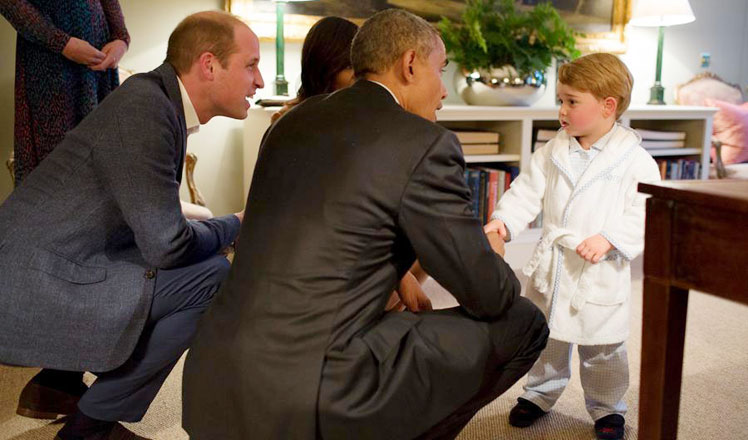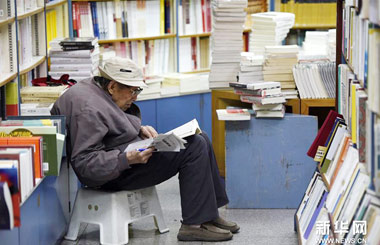Presidential election politics and perils of protectionism
Updated: 2016-04-25 11:01
By Don L. Bonker(China Daily USA)
|
|||||||||
This year's presidential election is not lacking in absurdity, another example being a Republican billionaire and a socialist Democrat in sync on what has become a contentious issue, attacking trade agreements by declaring they are "disastrous" or being negotiated by "stupid people".
While both have sparked a populist uprising denouncing US trade policy, their support base is an amazing contrast. At Donald Trump rallies, you see middle-aged Joe Sixpack types, while Bernie Sanders enthusiasts are mostly millennials.
What they have tapped into is the viral protectionism spreading across the country, embedded in Midwestern states that suffered job losses as American companies shifted their manufacturing operations to low-wage countries like Mexico and China.
Both Trump and Sanders are clueless or blatantly dismissive of the consequences of such actions, but their insane rhetoric could lead to a trade war, even a collapse of the world trading system, should either ever make it to the White House.
They should also take some time to read the US Constitution, which clearly states that "Congress shall regulate interstate and foreign commerce", so if either were to occupy the White House, any attempt to arbitrarily impose a 35 percent tariff would likely be more a myth than reality.
They should also know, it's not the Chinese producers that pay the punitive tariffs but the US importers, who last year paid $30 billion in fees on a range of imports, which are passed on to distributors and ultimately result in higher consumer prices.
Trump, ever boastful of his business savvy, should also expect China to reciprocate, as it predictably will, to restrict US exports from entering their market.
Today, both political parties are in a quandary on international trade. Obviously, Trump's saber rattling on trade has alarmed Republicans, given that Ronald Reagan more than anyone shaped the party's free trade position that aligns it with business interests.
On the Democratic side, it was Bill Clinton who convinced a reluctant Congress to approve NAFTA (North American Free Trade Agreement), and it's the Obama administration that launched both the Transpacific Trade Partnership (TTP) and the Transatlantic Trade and Investment Partnership (TTIP), but both were in jeopardy even before the presidential election.
In this raucous presidential campaign, both sides slamming America's trade policy could put our country on the perilous path of protectionism, thus undermining America's presumed role as the leader in today's global economy. Someone should remind both Trump, if ever he listens, and Sanders, ever the demagogue, that we've been down that path before, and it proved devastating.
In the 1928 presidential election, the Republican candidate Herbert Hoover campaigned on the populist anti-trade issue, pledging to restrict foreign imports if elected, a message that resonated with the commodity producers and manufacturers who felt betrayed in an emerging global economy, which set the stage for a Republican Congress poised to run amok on limiting imports.
Indeed, shortly after the elections, newly formed trade associations mobilized an unbridled frenzy of logrolling, jockeying for maximum protection for commodity and industry producers leading to enactment of the Smoot-Hawley Tariff Act that hiked import fees, some up to 100 percent, on over 20,000 foreign products.
On the Senate side, another 1,200 amendments were added that proved so egregious, prompting Democrat Senator Thaedeus H. Caraway of Arkansas to declare that "I might suggest that we have taxed everything in this bill except gall," to which Senator Carter Glass of Virginia responded, "Yes, and a tax on that would bring considerable revenue."
What Congress sent to the White House proved so alarming it prompted 1,000 of the nation's leading economists to sign a petition urging President Hoover to veto the legislation, plus full-page advertisements in The New York Times that warned signing the bill may prompt a fierce reaction.
Indeed, within a few months, America's leading trade partners - Canada, France, Mexico, Italy, 26 countries in all - retaliated, causing world trade to plummet by more than half of the pre-1929 totals, one of several factors that precipitated the Great Depression.
Former US Trade Representative Robert Zoellick got it right when he declared that such trade agreements are more about politics than economics. That has been the case in successive administrations, under pressure from Congress, labor unions and special interests: take advantage of US trade laws to restrict foreign imports, ranging from apparel and textiles, specialty steel products, lumber and recently, solar panels.
True, politicians cannot ignore the plight of Midwestern states that have sustained massive job losses caused by American companies relocating their plants abroad, but hasty and ill-conceived actions could do greater harm to the economic well-being of the US and beyond in a fragile global economy.
The author is executive director of APCO Worldwide, former US congressman and chairman of the House Foreign Affairs Subcommittee on Trade.
(China Daily USA 04/25/2016 page12)

 The world in photos: April 18- April 24
The world in photos: April 18- April 24
 People have fun in pillow fight held in Kiev
People have fun in pillow fight held in Kiev
 Laotian wives in East China's Anhui province
Laotian wives in East China's Anhui province
 Couples get married in their 'birthday suit'
Couples get married in their 'birthday suit'
 Teenagers play Chinese instrument Zheng in Hubei
Teenagers play Chinese instrument Zheng in Hubei
 In pics: Top 10 richest cities in China
In pics: Top 10 richest cities in China
 Readers at a 24-hour bookstore in Beijing
Readers at a 24-hour bookstore in Beijing
 Flame for Rio Olympics lit in ancient Greek ruins
Flame for Rio Olympics lit in ancient Greek ruins
Most Viewed
Editor's Picks

|

|

|

|

|

|
Today's Top News
Liang avoids jail in shooting death
China's finance minister addresses ratings downgrade
Duke alumni visit Chinese Embassy
Marriott unlikely to top Anbang offer for Starwood: Observers
Chinese biopharma debuts on Nasdaq
What ends Jeb Bush's White House hopes
Investigation for Nicolas's campaign
Will US-ASEAN meeting be good for region?
US Weekly

|

|









